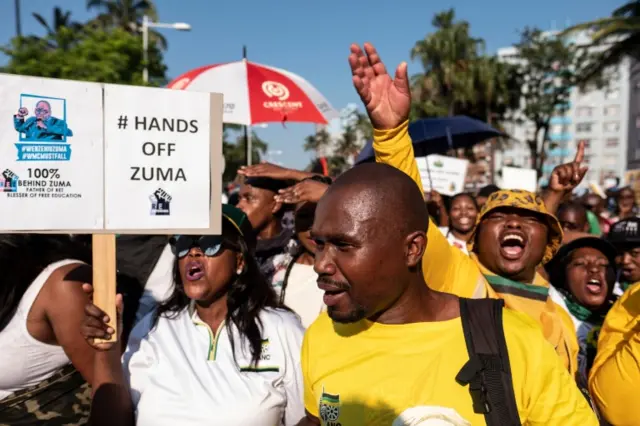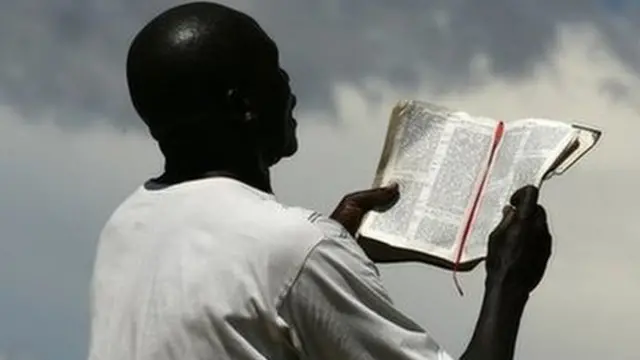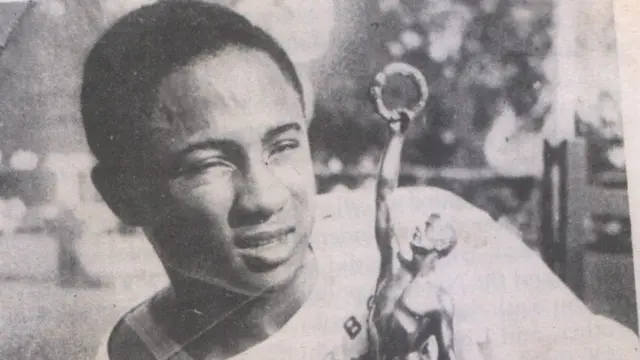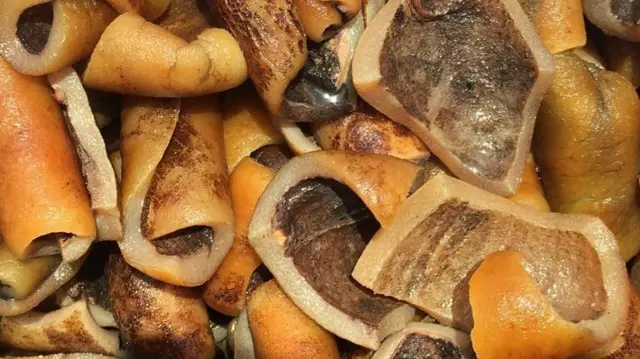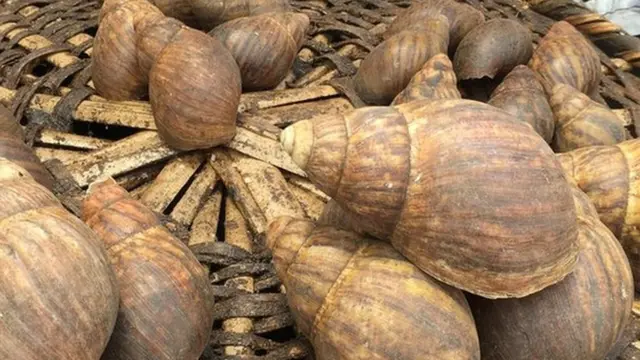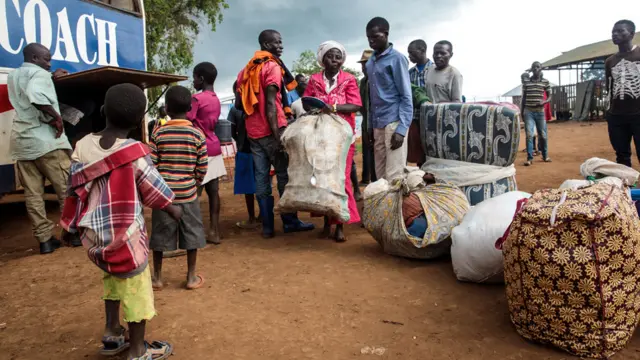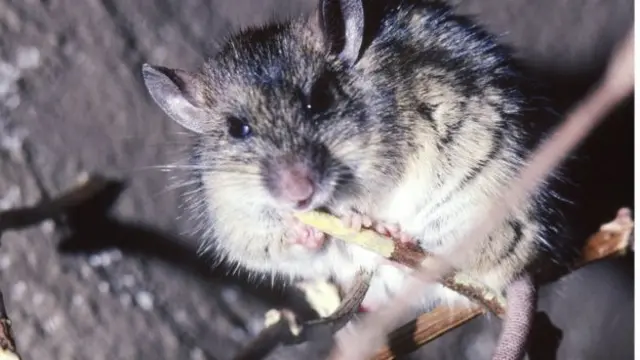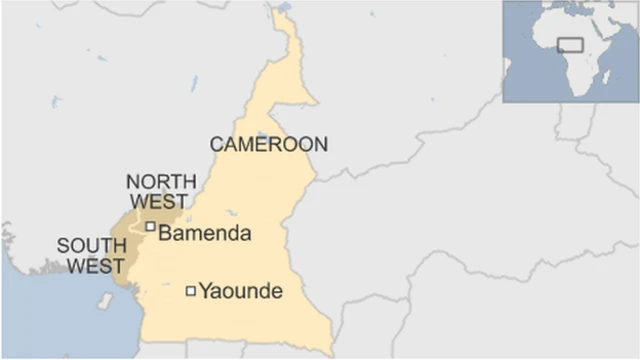Zuma arrives in courtpublished at 08:28 BST 6 April 2018
South Africa's ex-President Jacob Zuma has arrived in court to face corruption charges, as a video by a leading news outlet shows:
Allow X content?
This article contains content provided by X. We ask for your permission before anything is loaded, as they may be using cookies and other technologies. You may want to read X’s cookie policy, external and privacy policy, external before accepting. To view this content choose ‘accept and continue’.

